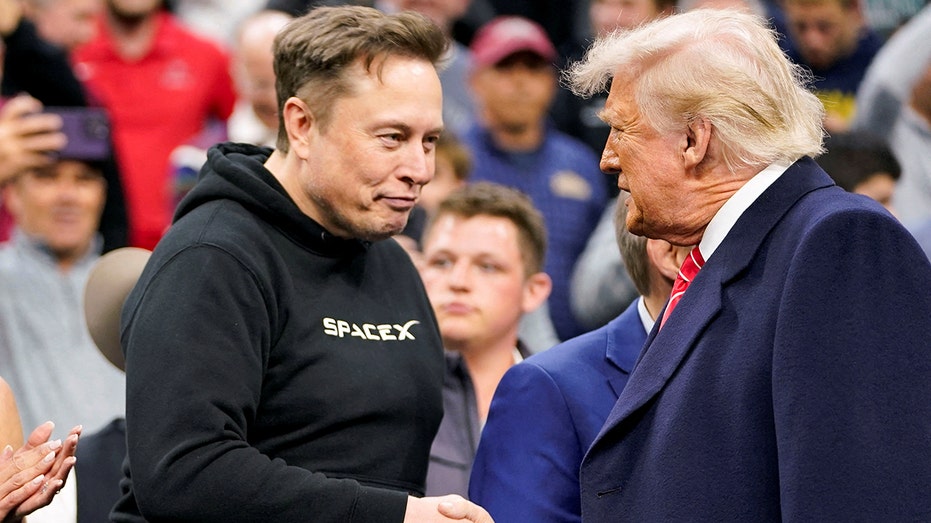Elon Musk's Conservative Shift Sparks Clash with Trump on Key Legislation Over 'Kill Bill' References
Tech mogul Elon Musk pivots to the political right, clashing with Trump over recent legislation after endorsing the former president.

Elon Musk, the influential tech entrepreneur and former head of the Department of Government Efficiency (DOGE), has emerged as a vocal critic of President Donald Trump’s latest legislative initiative, the so-called “One Big Beautiful Bill.” Despite his previous close alignment with Trump and active campaigning on his behalf, Musk’s recent departure from DOGE appears to have emboldened his public opposition to the sweeping spending package currently moving through the Senate.
Musk’s criticisms have reverberated across social media. On Tuesday, he posted on X, “This massive, outrageous, pork-filled Congressional spending bill is a disgusting abomination,” directly challenging both the content of the legislation and those lawmakers supporting it. He further warned that “the bill’s immense level of overspending will drive America into debt slavery!” The billionaire’s use of viral memes and direct calls to action have amplified the debate within conservative circles, pressuring lawmakers to reconsider their positions.
The controversial measure, which seeks to fund much of Trump’s agenda — including enhanced border security and eliminating taxes on overtime and tips — has triggered sharp divisions within the Republican Party. Several members of the party’s fiscal conservative wing, notably the House Freedom Caucus and Senators Rand Paul and Ron Johnson, have echoed Musk’s concerns. Senator Paul has warned that passage of the bill could hike the national debt ceiling by an additional $5 trillion, labeling the move as antithetical to conservative principles.
The financial implications are significant. The United States’ national debt currently exceeds $36 trillion, and a recent report from the Congressional Budget Office projected that the bill would add another $2.4 trillion to the deficit over the coming decade. Critics argue these figures contradict Republican promises of fiscal discipline. In response, President Trump has doubled down, arguing the economic growth spurred by the bill would be sufficient to offset the projected deficits, while accusing dissenting Republicans of playing into Democratic hands.
Musk’s own track record on government efficiency has become part of the debate. During his 130-day tenure at DOGE, which ended in late May, he led aggressive efforts to root out waste, fraud, and inefficiency in federal programs, garnering praise from conservatives but drawing ire from liberals. The department claims to have saved taxpayers an estimated $180 billion through cost-cutting measures, program eliminations, and anti-fraud initiatives. Musk himself called the passage of the new spending bill disappointing, saying it undermined DOGE’s work and long-term goals for a leaner federal government.
The backlash against the legislation has prompted key White House officials and congressional leaders to defend the plan vociferously. Press Secretary Karoline Leavitt dismissed the CBO’s deficit projections, citing historical inaccuracies in its scoring and suggesting partisan bias among staffers. Meanwhile, House Speaker Mike Johnson criticized the reliance on static scoring, suggesting that dynamic economic growth spurred by tax cuts and spending would ultimately balance the books.
This policy rift comes after years of Musk’s public political evolution. The billionaire, who once described himself as a Democrat and centrist, has shifted rightward over the past several election cycles. His endorsemen of Trump in July 2024 cemented this change, as did his frequent appearances alongside the President during campaign rallies in key battleground states. Musk’s increasing advocacy for free-market economics, smaller government, and Second Amendment rights has further solidified his status among conservative voters.
Musk’s ideological trajectory is evident not only in policy debates but also through the thinkers he cites and celebrates. In recent weeks, he has shared videos and quotes from free-market economists like Milton Friedman and Thomas Sowell, emphasizing themes of economic liberty, individual agency, and skepticism toward big government solutions. Additionally, Musk has strongly reiterated his support for gun rights, framing the Second Amendment as a bulwark against government overreach — a message warmly received by the Republican base.
Despite Musk’s departure, the Department of Government Efficiency continues its work, though it is slated to dissolve by July 2026 under the terms of Trump’s executive order. The ongoing friction between the administration and one of its former highest-profile allies illustrates not only the contentious nature of current fiscal debates in Washington, but also the challenges facing any governing coalition that seeks to balance expansive policy ambitions with demands for fiscal restraint.




